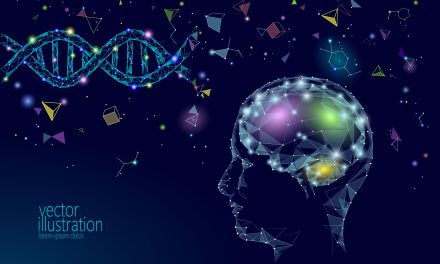Memory loss can be a natural part of aging, but there are steps one can take to help maintain their mental sharpness.
Staying physically and mentally active and maintaining a healthy diet can significantly help prevent memory loss in old age.
Simple lifestyle changes such as regular exercise, a balanced diet rich in fruits and vegetables, and engaging in cognitive exercises can influence brain health positively.

Social interaction and activities that challenge the mind play a crucial role in keeping memory strong.
Activities like puzzles, reading, or learning new skills are beneficial. It’s also important to manage any health conditions and ensure medications do not negatively impact cognitive function.
Additionally, ensuring sufficient sleep improves memory and learning.
Older adults should also monitor stress levels since chronic stress can affect brain function.
By integrating these habits into daily life, they can support cognitive health and protect memory as they age.
Key Takeaways
- Physical activity and diet boost memory retention.
- Cognitive exercises improve mental sharpness.
- Proper sleep and stress management support brain health.
Understanding Memory Loss with Age
Memory loss can happen as people grow older, but not all memory problems are the same. Some memory issues are a natural part of aging, while others might point to more serious concerns, like mild cognitive impairment (MCI).
Differentiating Between Normal Forgetfulness and MCI
As people age, it’s normal to occasionally forget names or lose track of where they placed their keys. This is often just age-related forgetfulness. It is usually mild and doesn’t disrupt daily life.
Mild Cognitive Impairment (MCI), meanwhile, is more concerning. It causes noticeable difficulties with memory, language, or judgment. Though MCI does not always lead to dementia, it can increase the risk, making it important to detect early.
Regular check-ups can help in distinguishing between normal memory lapses and MCI.
Key Factors Contributing to Memory Decline
Various factors contribute to memory decline. Age plays a significant role, as the brain naturally changes over time. But other elements like poor diet, lack of exercise, and limited social interaction can also hasten cognitive decline and memory problems.
Health conditions such as diabetes, high blood pressure, and depression can also impact memory.
Addressing these conditions might help in maintaining better cognitive health. Engaging activities like puzzles, reading, and learning new skills are encouraged as they keep the brain active and may slow memory decline.
The Role of a Healthy Diet in Memory Preservation
A healthy diet plays a critical role in preserving memory as people age. Eating specific nutrients can boost brain function and help maintain cognitive abilities.
Diets rich in vegetables, fruits, and healthy fats provide the necessary components for brain health.
Essential Nutrients for Brain Function
A balanced diet containing essential nutrients supports brain function and may help in reducing memory decline.
Vitamin B12 and vitamin D are key players, as they support nerve function and brain health.
Foods rich in vitamin B12 include fish, dairy, and fortified cereals. Vitamin D can be obtained from sunlight exposure and foods like fatty fish and fortified milk.
Fruits and vegetables provide antioxidants that protect brain cells from damage. Fish, especially those rich in omega-3 fatty acids, like salmon and sardines, can support brain cell structure.
Olive oil is another beneficial component, offering healthy fats that improve brain function. A diet including these nutrients can help maintain sharp memory and cognitive function as people age.
The Benefits of Mediterranean Diet
The Mediterranean diet has been linked to preventing memory loss and promoting brain health in older adults. This diet emphasizes the consumption of fruits, vegetables, whole grains, fish, and olive oil.
Studies suggest that following this dietary pattern may reduce the risk of cognitive decline and improve memory function, thanks to its nutrient-rich foods and healthy fats.
Olive oil, a staple of the Mediterranean diet, contains monounsaturated fats, which help lower brain inflammation. Regular consumption of fish provides omega-3 fatty acids, crucial for maintaining neural connections.
The inclusion of fresh fruits and vegetables adds necessary vitamins and antioxidants, further supporting brain health. The Mediterranean diet offers a tasty and effective approach to preserving memory.
Maintaining an Active Lifestyle
Living an active lifestyle is crucial for maintaining a sharp mind as we age. Regular physical activity and strong social connections are key aspects that can help reduce the risk of memory decline.
Exercise as a Cornerstone for Cognitive Health
Exercise plays a significant role in supporting cognitive health. Engaging in regular physical activity, such as walking, swimming, or cycling, can improve brain function and memory.
Aerobic exercise, in particular, increases blood flow to the brain, promoting the growth of new brain cells and reducing risks of memory-related diseases.
Individuals who maintain a consistent exercise routine may experience better cognitive health than those who lead a sedentary lifestyle.
According to some studies, physical activity may even protect against dementia or age-related memory problems by enhancing brain plasticity and improving mental agility. Being physically active helps in keeping both the body and mind fit, contributing to a healthier, longer life.
The Importance of Social Connections
Social connections play a vital role in maintaining cognitive function in older adults. Engaging in social activities, such as joining clubs, taking part in group exercises, or attending local events, helps reduce feelings of loneliness.
These interactions are beneficial not only for emotional well-being but also for cognitive health.
Active social engagement can be linked to better memory retention and slower mental decline. Individuals with strong social networks tend to have a lower risk of memory loss compared to those who are isolated.
Making regular efforts to stay socially connected can provide mental stimulation and emotional support, contributing to a healthier, more vibrant mind.
Improving Sleep Patterns
Consistent and restorative sleep is crucial to preventing memory loss in older adults. By addressing sleep problems and establishing a healthy sleep routine, individuals can enhance cognitive function and improve memory preservation.
Addressing Sleep Problems
Sleep problems like insomnia or sleep apnea can severely impact memory. Identifying and tackling these issues is essential.
Sleep apnea, for example, could be managed with devices like CPAP machines, which keep airways open during sleep. Insomnia might benefit from cognitive-behavioral therapy, known to improve sleep quality.
It’s important for individuals to recognize symptoms of sleep issues, such as excessive daytime sleepiness or frequent awakenings at night.
Consulting with a healthcare professional can help in diagnosing the problem and finding suitable treatments. Medications or sleep aids might be prescribed, but it’s often better to explore non-medical interventions first.
Establishing a Healthy Sleep Routine
Creating a consistent sleep routine can significantly aid in improving sleep quality.
Setting fixed bedtimes and wake-up times helps regulate the body’s internal clock and enhances overall sleep hygiene. Light exposure should be managed by getting natural light during the day and reducing screen time at night.
Engaging in relaxing activities before bed, like reading a book or taking a warm bath, prepares the mind for sleep. Limiting caffeine and heavy meals in the evening can also prevent disruptions in sleep.
By creating a bedroom environment that promotes relaxation, such as maintaining a cool, dark, and quiet room, people can support regular and restorative sleep.
Managing Health Conditions and Medications
Effective management of health conditions and careful evaluation of medications is crucial for preventing memory loss as one ages. This involves maintaining optimal levels of blood pressure and blood sugar, and understanding how medications may influence memory.
Controlling Blood Pressure and Diabetes
Many people face high blood pressure and diabetes as they age. These conditions can contribute to memory problems by increasing the risk of stroke and vascular dementia. Regular monitoring of blood pressure and keeping it within healthy limits is important.
Maintaining normal blood sugar levels also plays a crucial role. Lifestyle changes such as a balanced diet, regular physical activity, and weight management are vital.
These steps reduce the risk of complications that can affect memory and overall brain health.
Controlling these conditions helps in maintaining healthy blood vessels, thus reducing the chances of cognitive issues. Regular check-ups with healthcare providers can ensure early intervention and adherence to treatment plans.
Evaluating Impact of Medications on Memory
Certain medications used to manage illnesses may have side effects that include memory loss. It is essential to understand which medications might affect cognitive function.
Consulting health professionals about the medication’s impact on memory is important.
Doctors can help adjust doses or suggest alternatives if necessary. For example, some drugs for hypertension might influence memory, so patients should be well-informed about their options.
Keeping a detailed list of all the medications helps in evaluating their combined effects. Regularly reviewing these with a healthcare provider ensures that any negative impact on memory is managed effectively. Monitoring and managing medication-related issues can aid in maintaining brain health longer.
Cognitive Exercises and Mental Stimulation
Engaging in cognitive exercises and mental stimulation is crucial for maintaining sharp brain function as we age. These activities can enhance memory and support cognitive health, making daily tasks more manageable.
The Benefits of Lifelong Learning
Lifelong learning involves continually acquiring new skills or knowledge. This process keeps the brain active and can improve cognitive function over time.
Activities like taking up a new hobby or learning a new language can create new neural pathways, strengthening brain function.
Participating in educational courses or workshops can be beneficial. Online platforms offer a variety of subjects to explore, making it easier for anyone to engage in mental exercise.
Engaging with challenging material stimulates the brain and promotes mental resilience against age-related decline.
Using Brain Games and Mnemonic Devices
Brain games, such as puzzles or memory-based challenges, provide structured mental exercise that targets specific skills. These games can enhance memory and cognitive function by requiring focus and problem-solving. Apps and websites offer a wide range of games designed to strengthen mental acuity.
Mnemonic devices are another tool for improving memory. Techniques like acronyms or visual imagery can help recall information more effectively.
By associating new data with familiar concepts, mnemonic devices make it easier to retrieve memories. This method supports both younger and older adults in maintaining robust mental performance.
Psychological Factors Affecting Memory
Psychological health can significantly influence memory as people age. Mental health conditions like depression, stress, and anxiety can impact thinking and memory.
Combating Stress and Depression
Stress and depression are linked to memory issues. High stress can raise cortisol levels, which affect memory. Chronic depression might lead to cognitive decline. Addressing these issues is vital.
Engaging in regular physical activity can help reduce stress. Activities like walking or yoga release endorphins that improve mood.
Another way to combat depression is through social interaction. Talking with friends or joining group activities can offer mental stimulation and emotional support.
Mindfulness practices, such as meditation, can also reduce stress. This involves focusing on the present moment, which eases the mind.
Reducing stress and tackling depression can preserve memory function.
Reducing Anxiety and Enhancing Mental Health
Anxiety impacts behavioral abilities and thinking. High anxiety levels can lead to trouble focusing, which in turn affects memory retention. Improving mental health through simple steps can help.
Regular exercise supports both physical and mental well-being. Activities that people enjoy can provide relaxation.
Breathing exercises and progressive muscle relaxation techniques can also help manage anxiety.
Seeking professional help from therapists or counselors may provide valuable strategies to reduce anxiety. Cognitive-behavioral therapy (CBT) is one approach that can change negative thinking patterns.
Building a positive mental health routine can support memory retention.
Minimizing Risk Factors for Cognitive Impairment
Reducing the risk of cognitive decline involves addressing certain lifestyle factors. Two major areas of focus are avoiding smoking and excessive alcohol use, as well as managing weight to prevent obesity.
The Impact of Smoking and Alcohol Consumption
Smoking is harmful to brain health. It can accelerate memory loss and worsen conditions like dementia. Recognizing the risk, quitting smoking is strongly recommended. Strategies to quit include nicotine replacement therapies and support groups.
Alcohol consumption should also be monitored. While light to moderate drinking might not be harmful, excessive alcohol intake is linked to cognitive issues. It is important to set limits. Sticking to one drink per day for women and two for men is advised.
Weight Management and Obesity Prevention
Maintaining a healthy weight is crucial for lowering the risk of memory problems. Obesity in later life can increase the risk of cognitive decline.
Regular exercise and a balanced diet play key roles in managing weight.
Exercise routines that include both aerobic and strength training can help. Eating a diet rich in fruits, vegetables, and whole grains supports brain health.
Monitoring and managing weight effectively can lead to long-term benefits for cognitive function.
Frequently Asked Questions
Older adults can adopt various strategies to enhance memory, including physical and mental exercises and dietary changes. It’s important to recognize the differences between normal memory changes and more serious conditions like dementia.
What strategies can improve memory in older adults?
Strategies such as engaging in regular social interactions, maintaining a healthy diet, and ensuring adequate sleep can support memory.
Memory exercises, like puzzles and games, have also shown benefits.
What are typical signs of age-related memory loss?
Typical signs include occasional forgetfulness, such as misplacing items or needing more time to learn new things.
These are often mild and don’t interfere significantly with daily life.
Can certain foods or diets prevent cognitive decline?
Diets rich in antioxidants and omega-3 fatty acids, like those found in fish and berries, may help protect against cognitive decline.
The Mediterranean diet is often recommended for brain health.
What are the main differences between dementia and normal memory loss?
Normal memory loss includes minor lapses in memory that don’t affect daily functioning.
Dementia, such as Alzheimer’s, involves significant memory problems that interfere with everyday tasks and may worsen over time, resulting in long-term memory challenges and confusion.
More details on this distinction can be found here.
How does physical exercise impact memory and cognitive function in seniors?
Physical exercise, such as walking or yoga, has been shown to improve mood and enhance brain function.
It helps by increasing blood flow to the brain, which supports memory retention and cognitive health as people age.
What role do mental exercises play in maintaining cognitive health?
Mental exercises, including learning new skills or playing memory games, help keep the brain active. These activities can strengthen neural connections and may delay cognitive decline related to aging.
They play a crucial role in maintaining cognitive health among seniors.

















